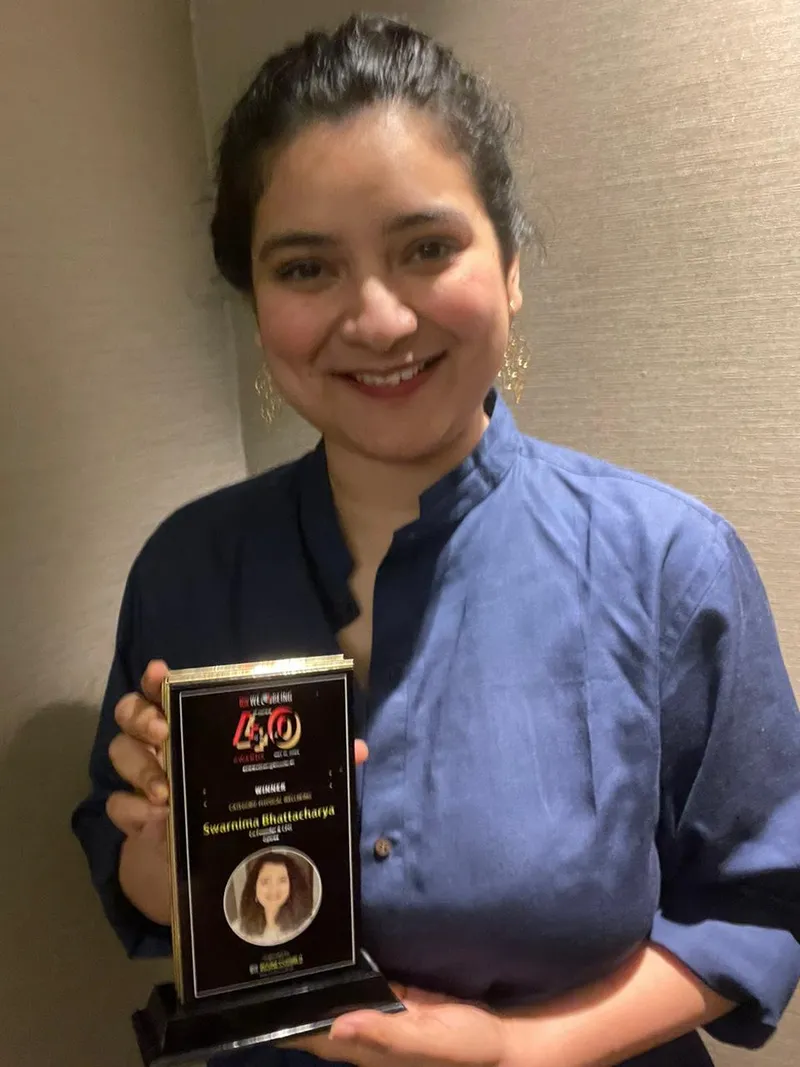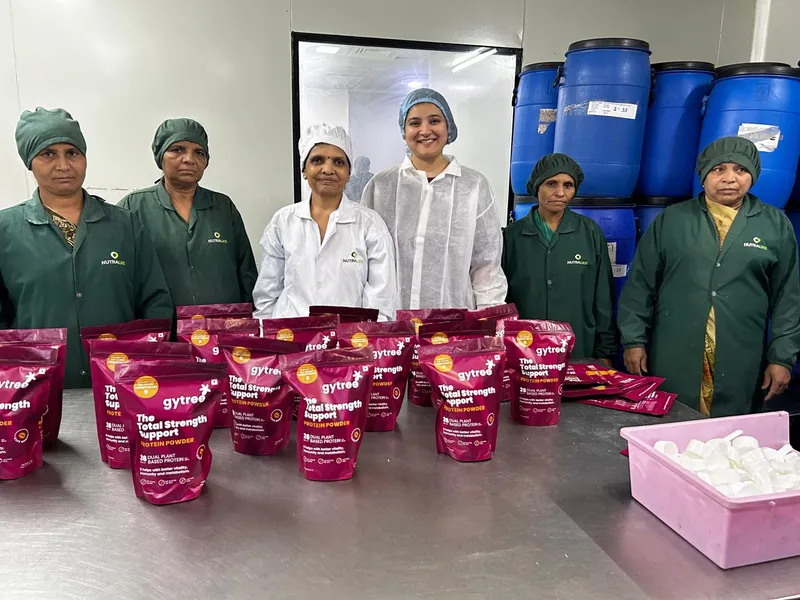[100 Emerging Women Leaders] Swarnima Bhattacharya is building Gytree as an ecosystem for women’s health
Swarnima Bhattacharya is the co-founder of Gytree, a femtech startup that offers products, services, and programmes to address diverse aspects of women’s health.
In 2010, as a student of English literature at Hindu College in New Delhi, Swarnima Bhattacharya found herself at the intersection of two worlds—the burgeoning startup scene in India and the pressing issues surrounding women’s health.
While interning with media houses, Bhattacharya became aware of women's health and its growing significance in the startup ecosystem. Her connection to the issue deepened when she saw her mother undergo a hysterectomy.

Swarnima Bhattacharya, co-founder, Gytree
Motivated by this experience, Bhattacharya chose the policy route, aiming to discover more about people developing innovative solutions for women’s health in India.
“I worked in healthcare in various capacities, in the UN, with the government, and projects with WHO and AstraZeneca. I was building my knowledge base and expertise in healthcare and realised women’s health needed robust solutions,” Bhattacharya tells HerStory.
In 2018, she started TheaCare, a women’s health advocacy platform, to bridge the gap between doctors, healthcare policy-makers, femtech researchers, and end users. It raised grants from the Department of Science and Technology (DST), IIT Delhi, AstraZeneca, The Do School and others and soon grew to a community of 100,000 women.
At the forefront of women’s health
With femtech gaining ground, Bhattacharya joined hands with Shaili Chopra, the founder of SheThePeople who was building Gytree, a startup for women’s health in 2022, as a co-founder. TheaCare was integrated into Gytree ecosystem.
“We have consciously built it as an ecosystem for women’s health across life stages. The insight that was driving us was that when it comes to healthcare, it is hard for a woman to find the right fit when it comes to a gynecologist, nutritionist, therapist, or any other expert,” she explains.
The second insight was that the referral network plays a huge role in finding the right fit for a problem.
“Women should not have to go from one place to another to find interconnected care. This fragmentation causes a leakage in the pipeline and delays care. Gytree is a simple proposition that targets the key health challenges busy women face today,” she adds.
Bhattacharya says Gytree promises a simple user journey where a person purchases a product or a service, and a second solution comes bundled with it. For example, if one purchases a protein powder, you can get a call from a nutritionist to understand why the purchase was made. She will also offer advice on usage and understand what health needs the person is trying to fulfill, free of cost.
Gyree currently offers products for weight and gut, skin nutrition, midlife and menopause, stress and sleep, and PCOS and hormones, and includes plant proteins and vitamin gummies.
The expert-led focus has led the startup to work with corporates and startups for the healthcare of their women employees.
“We are providing programmes to clients like HealthKart, Bharatpay, L&T, and others where we handle the entire care journey for its women employees with a dedicated manager. They ensure access to a GP, gynecologist, nutritionist, therapist, and other experts,” she elaborates.
Diverse offering

A team led by women
Gytree has 100 empanelled experts on the platform and a few are on rolls to provide these services.
It offers several programmes to address nutrition, PCOS, weight management, midlife challenges, cholesterol/diabetes management, psychological assessment, and more. Women can avail of subscription plans for six or 12 months. This pricing is customisable based on the inclusions. It ranges from Rs 6,000 to Rs 10,000 for 6 months, and Rs 15,000 for the year. The yearly package includes one lab test.
The products are available on its website and marketplaces like 1MG, Flipkart, Amazon, and others.
“Between March and December, we have seen a 120% increase in the number of corporate clients we have onboarded. Our protein powders have been out of stock seven times in the last year. We got 100 subscriptions within two weeks of its launch. The response has been very positive,” says Bhattacharya.
She points out that the larger challenge has been creating a market.
“When you are building for healthcare, it is not about quick returns. There are a lot of uncertainties. In India, people's approach to healthcare is very illness-oriented. Also, when one is trying to build a women-focused company, there is scepticism about whether this market has depth or not,” she adds.
As a second-time entrepreneur, Bhattacharya believes finding the right people around you is important.
“If your spouse or significant other does not understand the nature of ambition, wanting to do something different, then women are in trouble. Also, gumption is important. If you have it, you will have people who will cheerlead you to your destination,” she concludes.
Edited by Megha Reddy


![[100 Emerging Women Leaders] Swarnima Bhattacharya is building Gytree as an ecosystem for women’s health](https://images.yourstory.com/cs/4/8e7cc4102d6c11e9aa979329348d4c3e/100EWLSwarnima-BhattacharyaFeatureImage-1733476784495.jpg?mode=crop&crop=faces&ar=16%3A9&format=auto&w=1920&q=75)




